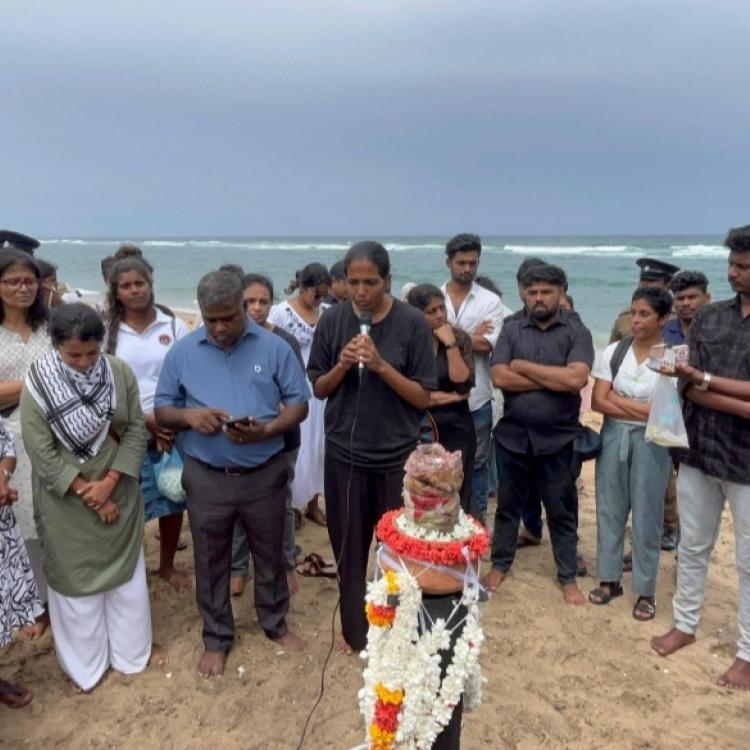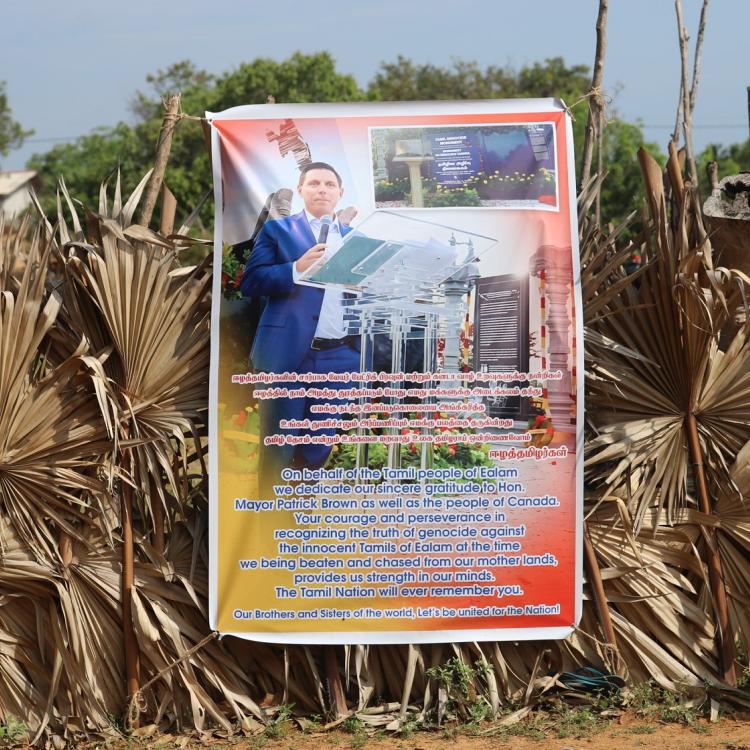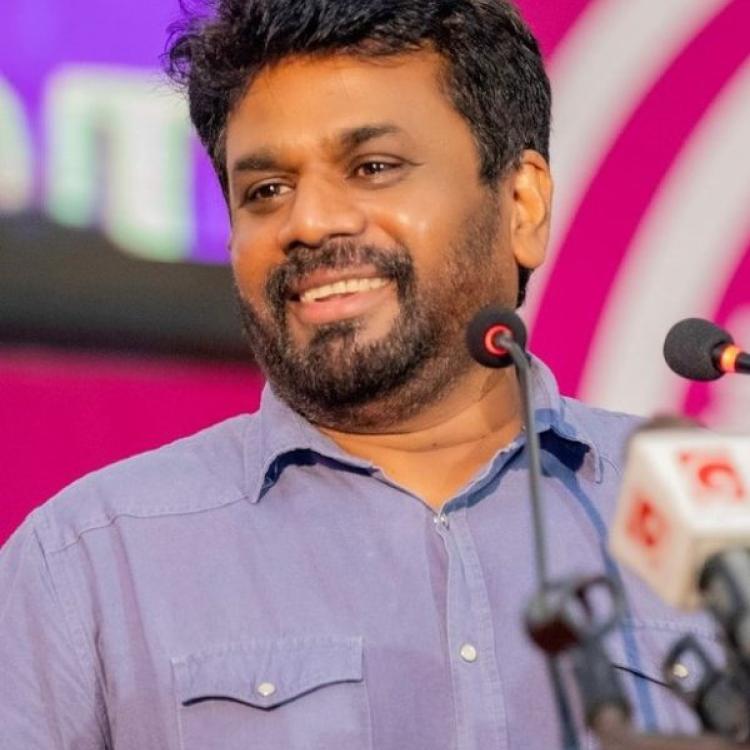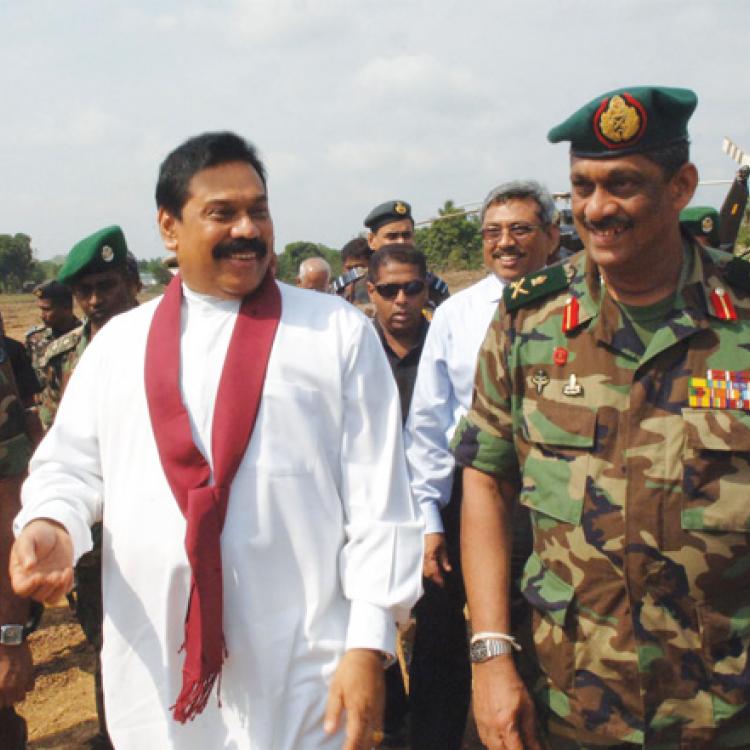.jpg)
Sri Lanka’s president attended a ‘Victory Day’ Commemoration ceremony took place on 19 May, just a day after thousands of Tamils across the North-East and in the diaspora mourned the Mullivaikkal genocide.
The event, described by the state as one to “honour the heroic sacrifices of the Tri-Forces, Police, and Civil Security Department (CSD) personnel,” saw the attendance of Dissanayake, despite earlier reports suggesting he would not participate.
.jpg)
Dissanayake delivered remarks in the presence of Field Marshal Sarath Fonseka, Admiral of the Fleet Wasantha Karannagoda, and Air Force Marshal Roshan Gunathilake—the three senior-most commanders who led the Sri Lankan military during the final phase of the war, culminating in the mass killings at Mullivaikkal.
Fonseka served as Commander of the Sri Lankan Army from 2005 to 2009, a period that witnessed widespread war crimes including the indiscriminate shelling of hospitals, mass executions, and sexual violence. He has been widely accused of war crimes, and in 2011 acknowledged that then Defence Secretary Gotabaya Rajapaksa issued orders for the execution of surrendering LTTE cadres - a statement he later attempted to recant, claiming he was misquoted.
Dissanayake, referencing Fonseka’s past imprisonment, stated:
“There is no justification for the Field Marshal to be incarcerated for over two and a half years. At that time, he and I shared a close relationship. It was power that prevailed, rather than law or justice. History has exploited these conflicts and wars to seize and strengthen power.”
.jpg)
“Today, we honour the brave military personnel and officers who sacrificed their lives to achieve this peace,” said Dissanayake. “Many soldiers sacrificed their lives to bring this war to a conclusion. Their names etched on these memorials stand testament to their sacrifice. Many others were left permanently disabled, while thousands of families still grieve the loss of loved ones. As a nation, we owe them an eternal debt. Their legacy binds us in gratitude and duty. This memorial reminds us that true homage lies in forging unity. Let us vow never to permit division again.”
Also in attendance was Wasantha Karannagoda, who served as Commander of the Navy during the final phase of the war and has also been implicated in serious human rights violations. In 2019, he was named the 14th suspect in the notorious “Navy 11” case, involving the abduction and enforced disappearance of 11 predominantly Tamil youth between 2008 and 2009. The victims were taken from Colombo and held at naval bases in Colombo and Trincomalee, where they were last seen alive.
Karannagoda was sanctioned by the United States in 2023, with a travel ban placed on him and his wife due to his involvement in gross human rights abuses. The United Kingdom has also imposed sanctions on him under its global human rights regime.
As part of the Victory Day celebrations, Sri Lanka’s Ministry of Defence announced that over 12,000 military personnel were promoted. These included:
• 186 Army officers and 10,093 soldiers
• 22 Navy officers and 1,256 sailors
• 9 Air Force officers and 868 airmen
The mass promotions come amid continued concern over the ongoing militarisation of Tamil civilian life in the North-East, where thousands of soldiers remain deployed. Over 16 years after the end of the armed conflict, the Sri Lankan military continues to occupy vast areas of Tamil land, including residential and agricultural properties.
.png)




